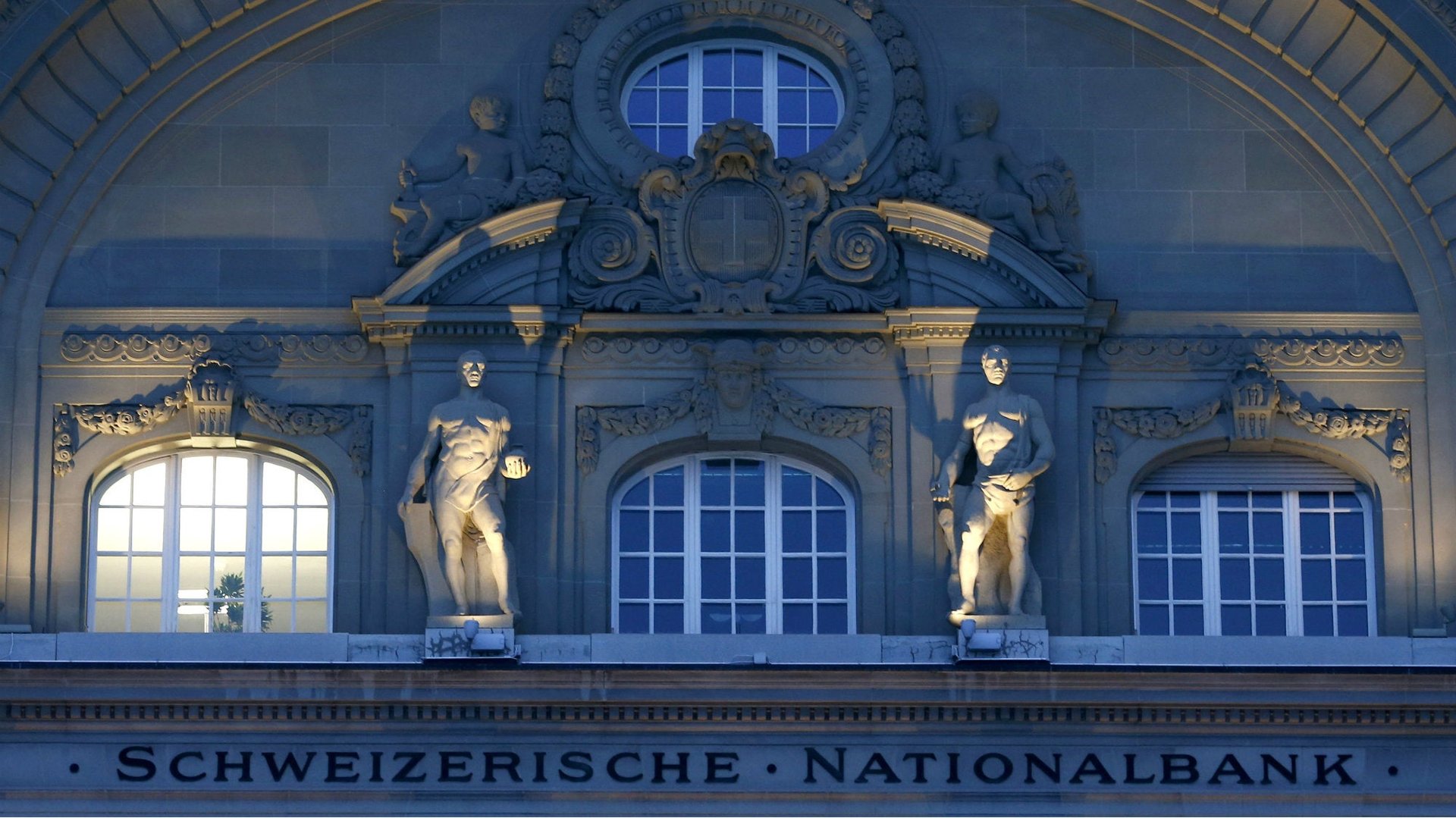The Swiss central bank suffered a record loss from the strong franc and weak gold
Unusually, Switzerland’s central bank has private shareholders and a listing on the stock exchange. Although it otherwise operates like a normal central bank, this is an important wrinkle.


Unusually, Switzerland’s central bank has private shareholders and a listing on the stock exchange. Although it otherwise operates like a normal central bank, this is an important wrinkle.
The majority of the bank’s shareholders (pdf) are cantonal governments that rely on dividends from the Swiss National Bank to help support local spending. The bank missed paying a dividend for the first time in its history in 2013 after suffering big losses on its gold holdings, saddling the institution with a loss of 9.1 billion Swiss francs ($10.2 billion at the time).
Shareholders might get stiffed again this year. Today, the bank reported a whopping 50-billion-franc loss for the first half of 2015 (pdf), the largest such deficit in its history.
This time around, the damage has been done by exchange-rate movements. When the Swiss central bank abandoned its target for the franc against the euro in January, the franc shot up in value. (The rising cost of defending the peg at an institution that answers to private shareholders may have played a factor in the decision.)
The move made the franc-denominated value of the bank’s foreign currency holdings—mainly euros and dollars—plunge in value. The hit wasn’t as bad in the second quarter as the first, but the franc is showing no signs of returning to earlier levels, which will feed through to valuations on foreign-currency-denominated investments for some time to come.
For good measure, gold prices have also been under pressure recently, another unwelcome development for the Swiss central bank’s balance sheet. But the 2-billion-franc loss on gold holdings in the second quarter paled in comparison with the hit of 18 billion francs to foreign-currency investments over the same period.
Although cantonal shareholders are holding out hope for a turnaround in the second half of the year to generate enough income for a dividend, they’d be wise not to hold their collective breath.